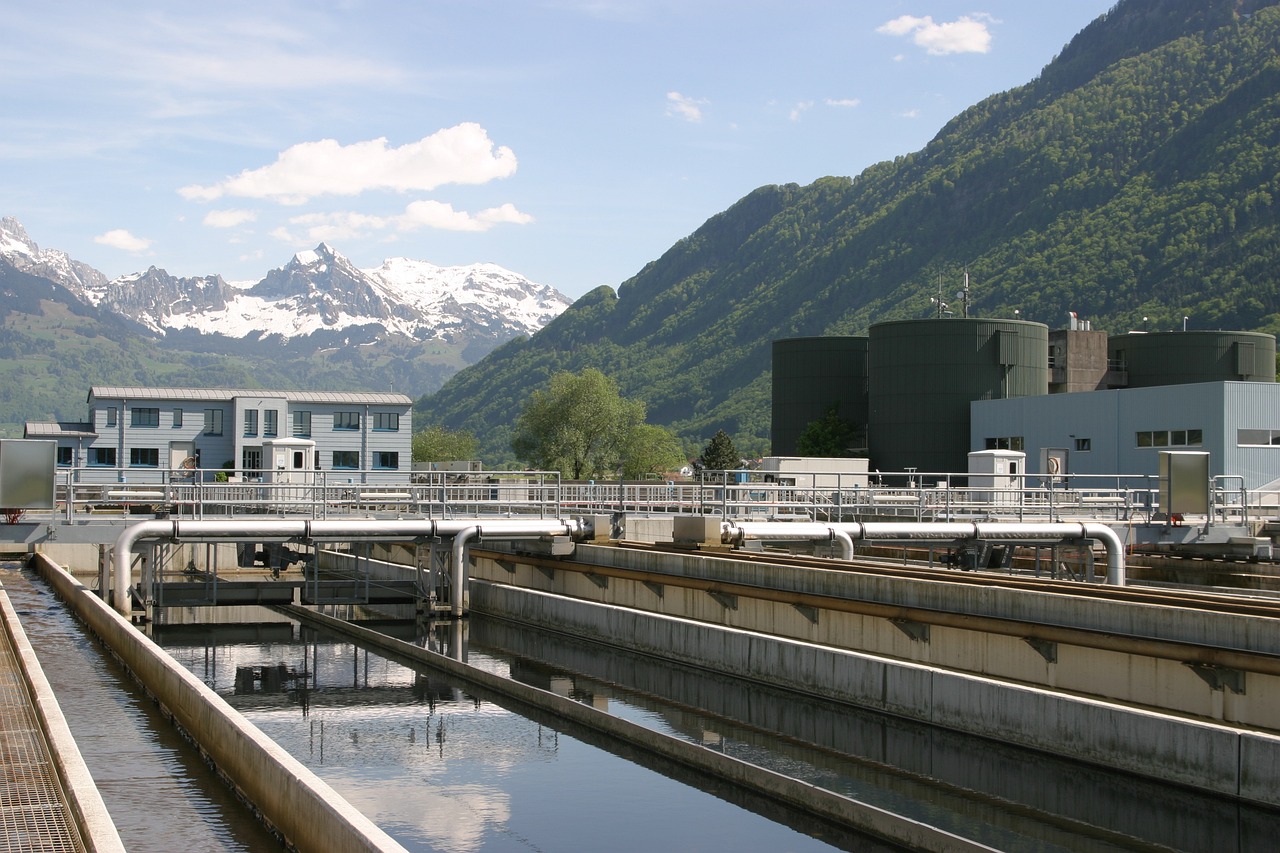At a Glance:
Flocculation in water treatment is the critical process by which suspended particles, contaminants, or other impurities are removed from the water. The suspended small-sized particles are coagulated into larger particles, hence called flocs, and made easy to separate from water through the use of flocculation chemicals. That means water will be cleansed of contaminants and become ready for use either in human consumption or in industries.
In this blog, we will enlighten the reader with what flocculation is in water treatment, how it works, why it is important and where chemicals play a role in achieving clean and safe water.
Understanding Flocculation in Water Treatment
This is the flocculation process that encourages the aggregation of smaller particles into larger clumps that are easily seen in water treatment. Most contaminants and other things such as clay, bacteria, and organic matter are too small to be filtered or settled out without chemicals.
These particles are usually negatively charged and repel each other, making it a nightmare for them to merge effortlessly. Flocculation serves to address this with use of flocculation chemicals that neutralize charges by encouraging particle binding.
The general trend of flocculation is usually after coagulation, where a coagulant is added to destabilize the particle charges. Flocculation entails particles sticking together and forming large entities, making them easier to remove from water. Water ends up much clearer and safe for drinking or industrial use.
How Does Flocculation Work?
- Flocculation is a combination of chemical and mechanical processes for operation. This is how the steps working process works.
- Coagulation: This is the first step. The initial stage begins with adding some coagulants. This might be aluminum sulfate or ferric chloride added to water. This helps destabilize the particles, due to which they lose charge.
- Flocculation: After coagulation, a gentle mixing or stirring is introduced to promote contact between the particles. Flocculation chemicals such as polymers are added to encourage the binding of smaller particles into larger flocs.
- Sedimentation: Once flocs are formed, they are dense enough to settle out of the water by gravity. These flocs are then removed through filtration or sedimentation.
- Filtration: The suspended flocs are filtered out from the water. Sand and membrane filters are mainly used in getting rid of the suspended flocs present in water.
This process ensures that safe water has been purified due to the removal of the suspended matter, organic components and other impurities in water.
Role of Flocculation Chemicals
Flocculation of chemicals encourage particle clumping by flocculation chemicals. Commonly used types of chemicals include
- Polymers: These are the long-chain molecules that will help bridge particles together. They work by attaching themselves to the particles, allowing the particles to bind into bigger flocs. Polymers can either be synthetic or natural. The kind of water to be treated will determine which one of these polymers to choose.
- Alumina-based compounds: Aluminum sulfate, commonly referred to as alum, is the most widely used flocculant. This chemical neutralizes the charge on suspended particles, thus allowing the suspended particles to aggregate and form flocs.
- Iron-based compounds: Ferric chloride and ferric sulfate are also common flocculants. They act in a very similar way to alumina compounds but are effective under other pH conditions.
- Organic flocculants: These come from natural sources, like plant starches. These are good alternatives and are used where synthetic chemicals are not desired.
Various conditions, like pH and water temperature and the nature of particles found in water, are what determine the use of which flocculating chemical. Each flocculating chemical has a definite role in ensuring the correct floc formation and, ultimately, the successful treatment of water.
Why is Flocculation Important in Water Treatment?
Flocculation of water treatment is important for the following reasons:
- Public Health: Flocculation is an important step to ensure safe drinking water. It removes harmful bacteria, viruses, and other contaminants that could be a threat to health if left untreated.
- Water Clarity: Suspended solids and organic materials are removed through flocculation, thus enhancing the clarity of the water. It is more appealing to consume and use.
- Cost Efficiency: Flocculation reduces the requirements for extensive filtration and chemical treatment processes. The total cost of water treatment decreases because less resource is needed to filter out impurities since small particles are aggregated into larger ones.
- Industrial Applications: In paper manufacturing, oil and gas, and food processing, flocculation of water is essential in removing particles that could cause problems with production processes or damage equipment.
Flocculation prevents the release of hazardous contaminants into rivers, lakes, and oceans. Treatment of wastewater prevents the formation of harmful contaminants that will otherwise build up and become injurious to the environment.
Flocculation Processes Problems
Although very effective, flocculation comes with a list of challenges, as below:
- Chemical Selection: The coagulants and flocculation chemicals used will have to be selected effectively so that the treatment process can work well. In some instances, improper dosing of chemicals may result in an incomplete formation of floc, which leaves contaminants behind in water. Apart from Aluminum Sulfate, Ferric Chloride, and PAC, Calcium Hydroxide is a common choice,
- Operational Costs: Chemicals and energy required to carry out flocculation can be relatively costly and depend on the quality of the water and the extent to which it is contaminated.
- Sludge management: From the flocculation comes the sludge formed from the aggregation. It is necessary to treat it and dispose of it accordingly. Poor handling of this sludge results in environmental issues as well as added expense on treatment.
- Environmental effects: Though the effectiveness of the flocculation chemical could be good, quite many cause environmental issues because of improper use by these chemicals. Organic ones, which are biodegradable, are used to avoid their usage, to have a strong impact on the environment, resulting in the use of water treatment.

Innovations in Flocculation Technology
The recent progress in flocculation technology is oriented toward efficiency, sustainability, and cost-cutting measures. Some such innovations include:
- Biodegradable Flocculants: Flocculants derived from starches or cellulose are biodegradable, making them gain popularity among industries with critical environmental standards.
- Automated dosing systems: For present-day water treatment facilities, an automated dosing system controls the addition of flocculation chemicals that measure the water quality continuously in real time. Under this condition, it will surely run at full efficiency while causing minimal wastage.
- Magnetic flocculants: Magnetic particles are used for flocculation, and research is still on whether this can be used efficiently as a medium to bind and separate particulate pollutants in water. The particulate pollutants may easily get retrieved from water through the application of magnetic fields; therefore, the energy-intensive separation process can be excluded from the filtration of the particles.
- Nanotechnology: In the case of flocculation chemicals, nanoparticles are added to enhance the effectiveness of particle aggregation, especially for highly contaminated water sources.
Conclusion: The Critical Role of Flocculation in Clean Water
Flocculation is an essential process in water treatment. In fact, it plays a significant role in ensuring safety, clarity, and quality in water. Whether applied to municipal water supplies, industrial wastewater treatment, or other uses, flocculation in water treatment is important for the removal of impurities and protection of public health.
This will make the clean water demand a driving reason for the development of new, efficient, and sustainable chemicals for flocculation purposes. The top companies, as well as Elchemy is among them, are truly on the front rungs of innovation when it comes to developing new chemical solutions directed towards the water treatment industry alone.
Offers high-performance, environmentally friendly flocculants that could bring better efficiency in water treatment with an environmentally friendly impact. Partner with Elchemy for forward-looking solutions for your treatment of water and provide it for everyone clean and clean.



